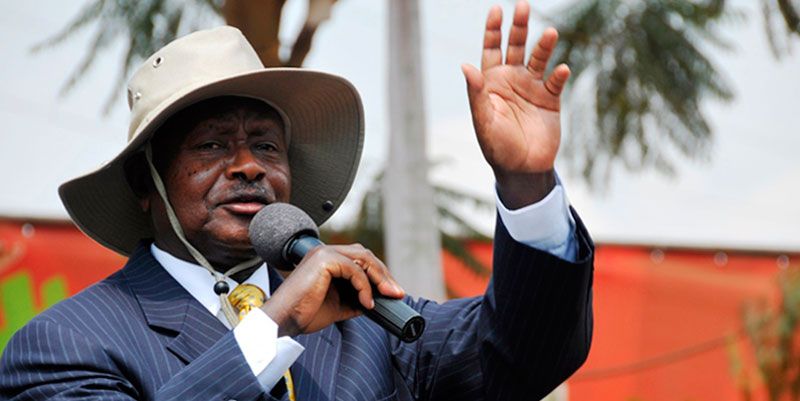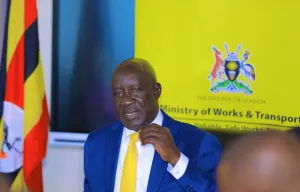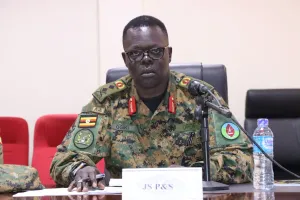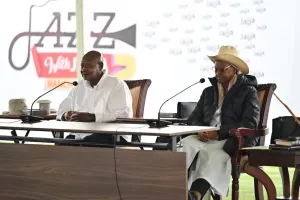
I usually hear even intelligent people talking a lot of ill of the policy of privatisation of state enterprises. That it was wrong for government to sell its parastatals. Those who hold this view usually advance it as the reason some sectors of the economy have failed today. In my view this is a wrong analysis. Instead of attacking privatisation, it is important to first ask ourselves why the economy is failing today. Is it actually the economy that is failing or the politics?
I have written about this topic before. In my view Uganda’s problem is not the failure of economics but the failure of politics. Government has failed and as a result failing the economy. No amount of visions or plans will transform the economy of Uganda under the current political arrangement and government. I usually tell people that if I had a way I would privatise this government.
My only worry is that like some parastatals of 1980s, let me first make a case for privatisation.
Inefficiencies of government
The government parastatals that were sold had grossly been mismanaged by government. Whenever I am teaching my students at Makerere University Business School (MUBS) the course of Ugandan Economy and I narrate to them the story of pre-reform Uganda, characterised by dysfunctional state enterprises such as the two government-owned bus companies, the Uganda Peoples Transport Company (UPTC) and the Uganda Transport Company (UTC), and the Uganda Posts and Telecommunications Corporation (UPTC), they think I am feeding them on a movie script.
Those who were old enough or have read the history of Uganda remember that before the 1987 Economic Recovery Program (ERP) which introduced market reforms and privatisation in particular, it was a nightmare of sorts to travel or communicate in Uganda.
In the pre-reform Uganda, there were a few UPTC or UTC buses that used to transport people across the country but these buses were so grossly mismanaged that they had turned Ugandans into “night commuters”. You had to wake up deep in the night and wait for the uniquely sounding UTC bus at the bus stop.
My mother told me that they used to do this because in the event this bus passed your stage before you woke up, you had to wait for the following day, if not the following week in case it broke down and the government official who procures spare parts is not in the mood of signing the order papers!
Before liberalisation and privatisation, our telecommunication services were singularly provided and managed by UPTC. If you were in Kampala and you wanted to make a call say to someone in Jinja, you had to lineup at the Post Office and wait in a queue, sometimes for as long as 30 minutes or an hour.
Reforms that worked
When you finally reached the telephone, you could feed in the number you wanted to call only to be informed that the traffic on that line was too heavy you had to wait for another 20 minutes for the line to clear. After 20 extra minutes of waiting, you could be informed that the line had gone off thanks to a fallen tree somewhere in Mabira that cut the wires. The UPTC engineers could take a month or so to fix the wires, so you were expected to be patient that long to make your call!
Narrating such stories to our students today who travel by time-conscious Matatus and buses, carrying the latest models of mobile phones connected on “Paka-last” networks, sounds truly like a movie script.
Mr President, in 1987, your government, with the help of the World Bank and the International Monetary Fund, had embarked on the Economic Recovery Program with seven policy objectives: (1) stabilisation of the economy, through the restoration of fiscal and monetary discipline; (2) liberalisation of consumer and producer prices; (3) liberalisation of interest rates; (4) liberalisation of exchange rate; (5) strengthening of the Balance of Payments; (6) deregulation; and (7) privatization and rationalization of state enterprises.
These reforms restored sanity in our economy. The dysfunctional state enterprises, such as the UTC and UPTC, whose inefficiencies I have illustrated above, were sold off and the entire economy got liberalised. The fruits are here for us all to enjoy.
One big inefficient entity, however, remained with us. This is government. Mr President, Ugandans have started to feel that your government is doing too good a job in advancing stagnation of our country. We wonder whether we wouldn’t do so well if we sold government as well.
Many development analysts believe Uganda’s economy is stagnant not because we lack resources or the means to transform it, but largely because the country is caught in leadership crisis.
Legal but not legitimate!
Mr President, I have poured oceans of ink on the composition of your government which I felt and still feel is not a winning team. Then, I only doubted the rest of the team and not its captain; now I doubt the entire team!
Mr. President, your government is letting us (the hardworking Ugandans) down. You are reversing every good thing that you had achieved. Now every day that passes reminds us of the “old” Uganda that fought to reform.
Your continued stay against the will of almost all key stakeholders in the country is doing a great job in letting down yourself and your colleagues who sacrificed nearly everything to secure this country. For the first time Uganda had become wholly peaceful and economically transforming. Now we are not sure whether the cycle we have been subjected to since independence won’t repeat itself.
True, you have the legal right to continue leading this country. You secured that in 2005 when you succeeded at plucking out term limits from the 1995 Constitution. However, it is no longer debatable that you have lost the legitimacy to continue in that office. All signs show that even you know this.
Lately, you and your government have turned into an angry government, typical of a guilty entity. Now every time you come out to speak, you are abusive, derogatory or disillusioned. You are no longer the charming and respectful President you used to be. If you are not calling important people names, you are uttering uncalled for statements that put that highest office in disrepute.
Abusive government
And it seems to us abusing leaders and other people is now a policy of government. Two spokespersons of government are legendary at abusing leaders. Tamale Mirundi, the Press Secretary to the President and Ofwono Opondo, the new head of Media Centre and thus official spokesman to government have made it their main job to abuse people. How can a government pride itself in abusing people including elders, clergy, professors and other senior leaders?
The other day I read a story in the government newspaper where Opondo, picked it up from you to belittle and abuse Makerere University professors. Why? Why getting to that level? Why reminding us the last days of Obote’s government when abusing opponents became the mainstay of government.
Mr President, because this trend was started by you, it became the fashion. Now leaders are all over the place fighting and abusing each other. These are signs of an overstretched regime that has lost all the legitimacy to govern, and out of frustration and guilt everyone is angry, abusive and in a mood to fight.
I propose that we sell government because no private investor can employ the type of people who are managing this government today. We need a corporate government to get out of this mess. Last week I wrote about Uganda’s failing State and showed where the problem is and what needs to be done. Selling government is one of those options we should start to debate.














Ramathan Ggoobi
Ramathan Ggoobi is Policy Analyst, and Researcher. He lecturers economics at Makerere University Business School (MUBS) and has co-authored several studies on Uganda's economy. For the past ten years, he has published a weekly column 'Are You Listening Mr. President' in The Sunrise Newspaper, Uganda's Leading Weekly
Leave a Comment
Your email address will not be published.